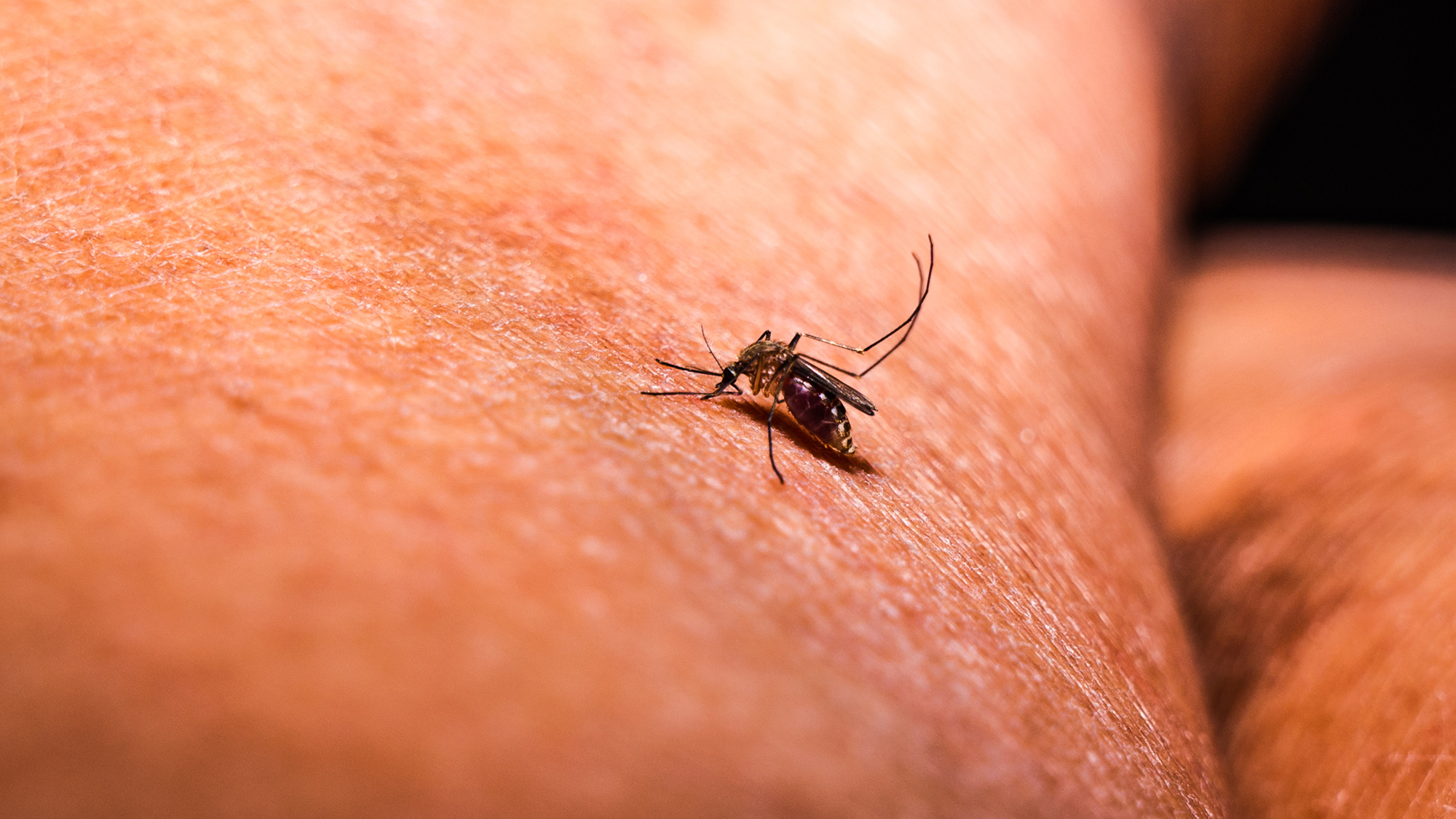The fight against malaria
After declining for decades, deaths from the disease are suddenly on the rise. What’s changed?

A free daily email with the biggest news stories of the day – and the best features from TheWeek.com
You are now subscribed
Your newsletter sign-up was successful
After declining for decades, deaths from the disease are suddenly on the rise. What’s changed? Here's everything you need to know:
How many people die from malaria?
The mosquito-borne disease currently kills some 620,000 people a year, about 80% of them are children under 5 in sub-Saharan Africa. That makes the mosquito the world’s deadliest animal and malaria — which is caused by a single-cell parasite and can fatally block the flow of blood to organs — one of the deadliest diseases in human history. For much of the past two decades, malaria’s death toll had been trending downward, the result of sustained investments from governments and nonprofits in prevention tools such as insecticides and mosquito nets. From 2000
to 2015, global malaria deaths fell by nearly 50% and deaths among under-5s dropped by almost 60%. But total deaths are now rising, climbing about 8% from 2019 to 2021. By 2040, more than 5 billion people worldwide could be at risk of contracting the disease, according to a Washington Post analysis. "It seems as though the mosquitoes are winning," said Eric Ochomo, a medical entomologist in Kenya.
What’s causing cases to surge?
In part, it’s because mosquitoes have evolved to overcome our best bug-fighting tools. The insects have developed resistance to commonly used insecticide sprays and have adapted their behaviors to defeat insecticide-treated bed nets. The Anopheles funestus species, for example, was once thought to mostly bite sleepers at night; it now bites people outdoors in the daytime. Meanwhile, an invasive South Asian mosquito species that is resistant to insecticides and thrives in urban environments — Anopheles stephensi — has started to spread across the center of Africa. In 2012, when the species was first detected in Djibouti, that tiny East African nation recorded only 27 cases of malaria. In 2020, it recorded more than 70,000, most in the capital, Djibouti City. "Every African city is at risk of facing what we’re confronting now," said Djiboutian health official Abdulilah Ahmed Abdi. And A. stephensi isn’t the only dangerous mosquito that’s expanding its range; climate change is allowing other species to push into new areas.
The Week
Escape your echo chamber. Get the facts behind the news, plus analysis from multiple perspectives.

Sign up for The Week's Free Newsletters
From our morning news briefing to a weekly Good News Newsletter, get the best of The Week delivered directly to your inbox.
From our morning news briefing to a weekly Good News Newsletter, get the best of The Week delivered directly to your inbox.
Why is that happening?
Malaria parasites and the mosquitoes that carry them do best in hot, humid, rainy climates — about 80 degrees is their sweet spot. And the number of areas with those exact conditions is increasing as global temperatures go up and rainy seasons get longer and more extreme. Mozambique’s high-altitude Mandimba district, which is cooler than many other parts of the southern African country, has seen malaria cases climb 20% since 2017 as the mercury has crept higher. Extreme weather events, which are made more likely by climate change, can also send cases spiking. Cyclones can crack walls and roofs, opening gaps for mosquitoes. Floods leave standing water, in which mosquitoes lay their eggs. Droughts, meanwhile, encourage people to store more water in containers, which are also ideal breeding sites. Unica Cardoso, a 35-year-old Mozambican, tested positive for malaria during Mozambique’s winter, when colder, drier weather usually decreases transmission. "I am not surprised anymore," she said. "But it is not normal."
Can vaccines help curb cases?
Targeting the Plasmodium parasites that cause malaria has proved tricky, because they have a multistage life cycle and are constantly evolving. But in 2021, the World Health Organization approved the first malaria shot for children — the result of decades of research and more than $1 billion in investment — and last month the organization approved a second vaccine, which is cheaper and more effective. That latest shot reduced symptomatic cases in trials by 75% and could mean "tens of thousands of children’s lives will be saved every year," said WHO official Dr. Mary Hamel. Yet while researchers hail this breakthrough, many recognize it will not spell the end of malaria. Many poor families will find it difficult to travel to clinics for the vaccination schedule, which requires four shots between the ages of 5 months and 2 years. For those in conflict zones, such travel will be impossible. "Large swathes of Africa will not be able to receive this," said malaria expert Nick White.
How else are researchers battling malaria?
Some scientists are betting on genetically modified mosquitoes. On the island nation of São Tomé and Príncipe, 200 miles off Africa’s west coast, University of California researchers are aiming to replace local mosquitoes with lab-tweaked insects that can’t transmit the malaria parasite. If the modified mosquitoes mate with wild mosquitoes, they could render nearly every insect immune to the parasite in a few generations — mere months for mosquitoes. Another project, from British biotech firm Oxitec and backed by the Bill & Melinda Gates Foundation, is modifying male mosquitoes to ensure they have only male progeny; unlike female mosquitoes, males don’t bite and so can’t spread the disease.
A mosquito threat in the U.S.
Mosquitoes and the diseases they carry are on the move around the world and America isn’t immune. At least nine locally acquired malaria infections have been detected in the U.S. this year: seven in Florida and one each in Texas and Maryland. These are the first malaria cases not linked to foreign travel to appear in the U.S. in 20 years. Cases of other mosquito-borne diseases are also climbing. In August, Alabama reported that one person had died of Eastern equine encephalitis — which has a 30% fatality rate and can leave survivors with neurological problems — and another had been infected. And dengue, which causes excruciating joint pain and is endemic to Puerto Rico and other U.S. territories, is appearing in new places: A locally acquired infection was for the first time detected in California last month. Florida has seen at least 10 local cases so far this year. There’s no indication of a "looming crisis in the U.S.," said dengue expert Alex Perkins. But the expectation that the disease will be a growing problem "is reasonable."
A free daily email with the biggest news stories of the day – and the best features from TheWeek.com
This article was first published in the latest issue of The Week magazine. If you want to read more like it, you can try six risk-free issues of the magazine here.
-
 Why is the Trump administration talking about ‘Western civilization’?
Why is the Trump administration talking about ‘Western civilization’?Talking Points Rubio says Europe, US bonded by religion and ancestry
-
 Quentin Deranque: a student’s death energizes the French far right
Quentin Deranque: a student’s death energizes the French far rightIN THE SPOTLIGHT Reactions to the violent killing of an ultraconservative activist offer a glimpse at the culture wars roiling France ahead of next year’s elections
-
 Secured vs. unsecured loans: how do they differ and which is better?
Secured vs. unsecured loans: how do they differ and which is better?the explainer They are distinguished by the level of risk and the inclusion of collateral
-
 Growing a brain in the lab
Growing a brain in the labFeature It's a tiny version of a developing human cerebral cortex
-
 Health: Will Kennedy dismantle U.S. immunization policy?
Health: Will Kennedy dismantle U.S. immunization policy?Feature ‘America’s vaccine playbook is being rewritten by people who don’t believe in them’
-
 Obesity drugs: Will Trump’s plan lower costs?
Obesity drugs: Will Trump’s plan lower costs?Feature Even $149 a month, the advertised price for a starting dose of a still-in-development GLP-1 pill on TrumpRx, will be too big a burden for the many Americans ‘struggling to afford groceries’
-
 Ultra-processed America
Ultra-processed AmericaFeature Highly processed foods make up most of our diet. Is that so bad?
-
 The quest to defy ageing
The quest to defy ageingThe Explainer Humanity has fantasised about finding the fountain of youth for millennia. How close are we now?
-
 The battle of the weight-loss drugs
The battle of the weight-loss drugsTalking Point Can Novo Nordisk and Eli Lilly regain their former stock market glory? A lot is riding on next year's pills
-
 An insatiable hunger for protein
An insatiable hunger for proteinFeature Americans can't get enough of the macronutrient. But how much do we really need?
-
 RFK Jr.: A new plan for sabotaging vaccines
RFK Jr.: A new plan for sabotaging vaccinesFeature The Health Secretary announced changes to vaccine testing and asks Americans to 'do your own research'